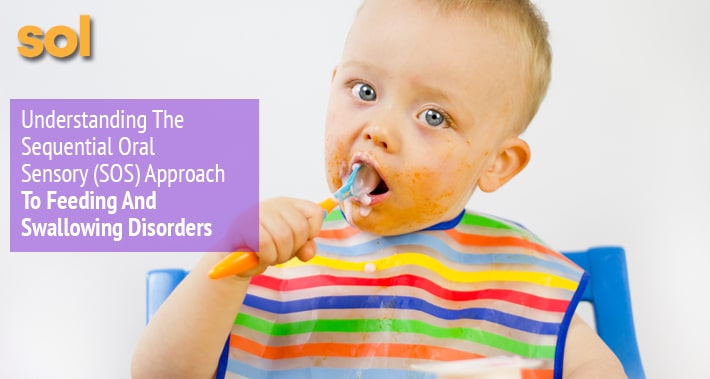
If you’re a parent or caregiver to an infant or young child, and your little one is having trouble with feeding or swallowing, it can be pretty distressing.
You worry about them getting enough nutrients to grow and thrive, and how they may feel if they’re hungry.
Some people may just write this off as being a “picky eater” or that it’s “just a phase”, but, for many children these issues go much deeper.
Left untreated, this can lead to dehydration, poor nutrition, infections, and negative associations with food.
And then there are the concerns about the long term effects of these issues, which can include problems related to learning, health, and socialization.
Thankfully, there is help.
As a provider of children’s speech therapy Austin TX, we also offer treatments for feeding and swallowing disorders.
And while you might not immediately think of speech therapy when you think of feeding and swallowing disorders, it’s within our scope of practice according to ASHA, the American Speech-Language-Hearing Association.
Let’s take a look at the SOS approach, and how it can help.
What Are Feeding And Swallowing Disorders?
Feeding and swallowing disorders affect how you eat and drink, as well as the process of moving food through the mouth and through to the esophagus and the stomach.
In particular, feeding disorders are related to issues with spoon feeding, chewing, drinking from a cup and sucking.
Swallowing disorders, also called dysphagia, involve the movement of food through mouth to the stomach.
Some signs of feeding and swallowing disorders include:
- Difficulty breathing while eating and drinking
- Refusal to eat or drink
- Only eating foods of certain textures
- Gagging or coughing while eating
- Not gaining weight
- Trouble with chewing
- Overly messy eating
- Taking longer than normal to eat
Potential causes for these disorders include issues such as:
- Reflux and other stomach issues
- Nervous system disorders
- Cleft lip or cleft palate
- Autism spectrum disorder
- Muscle weakness
- Behavioral issues
- Sensory issues
If your child is experiencing issues related to feeding or swallowing, there are pediatric speech therapy for feeding and swallowing disorders which can help.
Today we’re going to have a closer look at the Sequential Oral Sensory (SOS) approach to treating these issues.
What Is The SOS Approach?
The SOS approach stands for Sequential Oral Sensory because these are the main components of the program.
This program was created by health professionals spanning a variety of disciplines including medicine, speech therapy, mental health, occupational therapy, and dietetics.
Oftentimes the reasons for feeding and swallowing disorders are related to oral and sensory issues, which must be addressed.
It’s also recognized that SOS can also mean “Save Our Ship”, which is how parents and caregivers of children who won’t eat often feel – as though they are drowning, and this program is designed to reach out and help those who are struggling.
This approach recognizes eating is far more complicated than most people realize – an issue with feeding can mean issues with any combination of the following areas:
- Organ systems – understanding the role these systems play in eating, and what could be interfering with them.
- Muscles – are the muscles of the mouth working properly, and can they sit upright and feed themselves?
- Sensory processing
- Cognition and learning – what is their capacity for learning, learning style, and history.
- Development
- Nutrition – are they hungry enough and strong enough to eat?
- Environment – only in five to ten percent of cases are the parents the cause of a child not eating well.
The SOS approach recognizes issues with feeding are often just the tip of the iceberg, and a holistic approach is required to help children develop a better relationship with food, so they can get everything they need to thrive.

Who Can Benefit From The SOS Approach?
If your child falls into one of the following groups, the SOS approach may be right for you:
- Your child is a “picky eater” who has very particular food preferences
- They periodically stop eating certain foods which they previously enjoyed
- They often eat an entirely different meal than the rest of the family
- They sometimes refuse entire food groups or certain types of food due to texture
How Does The SOS Approach Work?
The SOS Approach works by targeting both the oral motor skills and sensory processing issues required for eating foods of a variety of textures.
The goal of this approach is to increase your child’s comfort with different types of foods, leading up to introducing new foods.
This is done in six steps, which include:
1) Getting comfortable with the look of food
2) Indirectly interacting with food, such as with a fork
3) Processing the smell of food
4) Touching the food
5) Tasting the food
6) Practicing chewing and swallowing
Book Your Appointment With Sol Speech And Language Therapy Today
Is your child a picky eater?
Are they starting to refuse foods which they have previously eaten without any issues?
Or have they always had issues with foods of certain textures or temperatures?
Our team of licensed therapists can help.
At Sol Speech and Language Therapy, have a special focus in helping children to overcome their picky eating challenges.
Book a consultation today to find out how we can help.
6448 E Hwy 290 Suite E-108,
Austin, TX 78723
(512) 368-9488
» https://g.page/r/CfRfhOpEQm7BEAE
Sol Speech & Language Therapy
555 Round Rock W Dr E-221,
Round Rock, TX 78681
(512) 808-3953
» https://g.page/r/Cb5pwCTosSEfEBM
Sol Speech & Language Therapy offers personalized skilled intervention to those struggling with their speech and language skills. Services offered include screening, consultation, and comprehensive evaluation. We also provide one-on-one and/or group therapy for speech sound disorders, receptive/expressive language delay/disorder, stuttering/cluttering, accent reduction, and much more.